The Compelling Narratives of Video Games
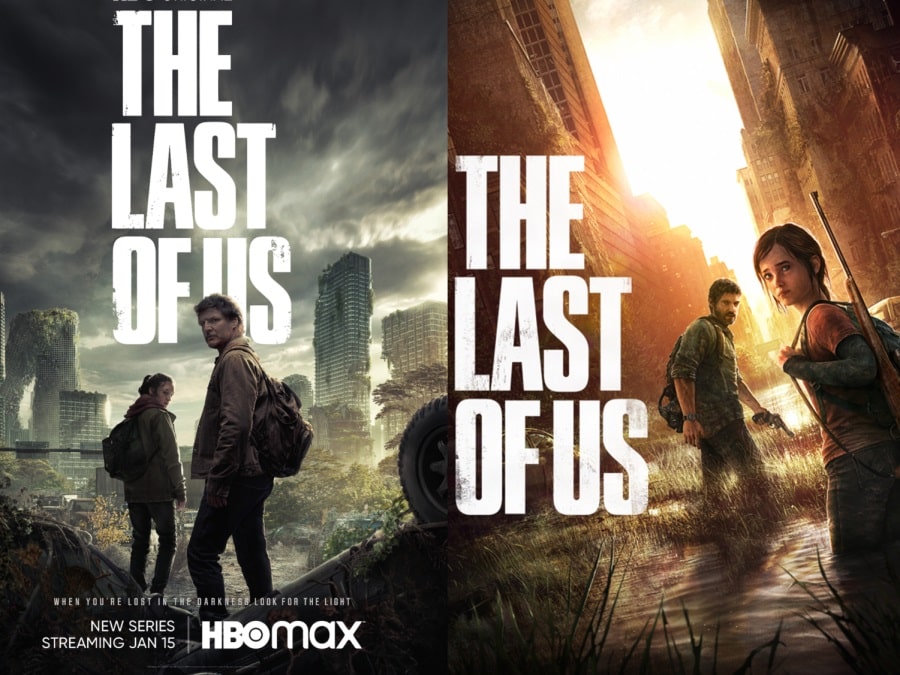
My love of gaming is well known amongst my friends and friendly acquaintances, and has since before I could afford my first console. In news that would surprise absolutely no one, my preference has always been for narrative games; where the story plays as much a role in the gaming experience as any tests of skill or intellect. The best games for me strike a delicate balance between challenging gameplay — combat and puzzles — and narrative. In short, I game for the same reason I read. I game to find myself immersed in another world, diving into a story that will delight and move me.
When I struggle with the world, which was quite often these last three or so years, it’s to books or video games I regularly turn. I found that when I was really struggling, I didn’t turn to film or television so much, as I’ve been feeling quite detached with the kind of stories on offer in those media. Few matched the emotional depth I, very specifically, needed. The Untamed, available on Netflix, was one of the few television shows I could tune into precisely because the stakes were incredibly high, and the narrative was spectacularly heartfelt.
There have been video games that have moved me so deeply, I spent the entire end credits sobbing hysterically. This was the case with Hellblade: Senua’s Sacrifice. The ending was so powerful that I was left an emotional wreck, crying so hard I shivered as the end credits rolled… while streaming live. Luckily for me, the end credits song was copyrighted, and so the sound was removed from the end credits entirely when it came time to port the footage over from Twitch to YouTube. There is no evidence of my weeping. Just blessed silence.
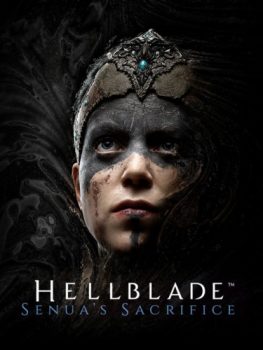
Other games have also proven to have remarkably brilliant narrative, on par or even exceeded many of the books I have read and enjoyed. Of particular note for me was the 2018 God of War (and it’s 2022 successor God of War: Ragnarok, (which I am currently playing through (let me tell you how I think it was absolutely robbed at the Game Awards)), The Last of Us, and Ghost of Tsushima.
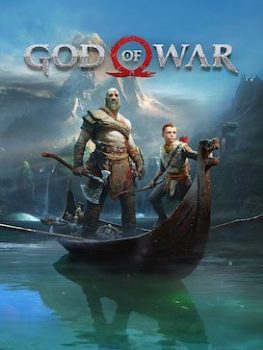
The 2018 launch of Sony’s God of War struck me as extremely impressive for multiple reasons. The original games were alright. They were okay. They were as many video games are; dumb fun, with a story that served as an adequate vehicle for the gameplay. The main character, Kratos a formerly Spartan soldier, was essentially the embodiment of toxic masculinity; the very avatar of rage. He was little more than a detailed sprite you directed across the screen to effect a flood of pixelated blood and gore.
I held little care for Kratos, being what he was. There was no real connection to him as a character or his goals. I will say for that writing team that the motives made sense. It wasn’t bad, per se, but it wasn’t brilliant.
2018 changed that. Kratos appears to those who know him as older, wiser, and far, far more sympathetic. The narrative was moving. Ostensibly, the game was about a father and son traversing the nine realms as per Nordic myth (the Greek pantheon had been absolutely obliterated by Kratos in the games prior) to deliver the final wish of Faye — Kratos’ spouse and the mother of his child.
What the story was actually about, however, was healing from trauma. It was about lowering a father’s guard, about accepting his own divine nature, which his whole life experience has taught him was monstrous, and thus the divinity of his child. It was about a largely absent father learning to bond with his son, learning what it means to be a father, and unlearning his fear of what sons and fathers do to one another.
The developers changed their focus. They had a story to tell. Instead of the narrative serving as a vehicle for the gameplay, the gameplay now served as a vehicle for the narrative. That tiny distinction proved to be magical.
Brilliantly acted with Christopher Judge voicing and acting Kratos (the game was largely motion captured), and Sunny Suljic playing his son Atreus, the narrative in this game really shines. The writers outdid themselves.
It turns out, I am not the only one who believes so. In December of last year, it was announced that Amazon Prime has acquired the rights to turn this excellent video game into a television series. While it is not quite in production, and no casting announcements have been made, I’m heartened to read that Cory Barlog, who directed the 2018 game, is serving as an executive director for this production. I am cautiously optimistic about this series. I cannot wait to see this story reach the screen.
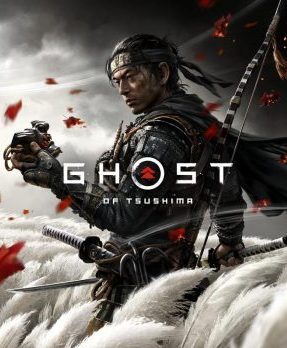
Another brilliant narrative that I enjoyed deeply was Ghost of Tsushima. In this wonderful game, we follow our protagonist, Jin Sakai — orphaned young and raised by his uncle, Jito of the island of Tsushima, Lord Shimura — as he faces the Mongolian invasion of his island. On the way, he gathers about himself an unlikely band of fighters; a thief (who saved his life), her blacksmith brother and their sake brewer/swindler of a friend, a disgraced samurai, the lady and sole survivor of the Adachi Clan, and a warrior monk whose brother had gained considerable renown. Together with these allies, Jin Sakai must find a way to save his island and his people from the Mongols; even if it means breaking the very strict samurai code in which he was raised.
On the surface, it is simply a band of heroes protect their home, but it runs so much deeper than that. It’s an exploration of what happens when duty clashes with tradition, when codes of honour conflict, and what heroism actually costs (hint: so very much).
Brilliantly acted by the entire ensemble cast (with a standout of Daisuke Tsuji as Jin Sakai in the English language version), this story was so damned good (and the gameplay so enjoyable), that I have played this game four times over; twice in Japanese (with subtitles) and twice in English. It is also the first game I have ever hundred percented. For those who don’t game, that means I found all the collectibles, fought all the extra battles, and performed all the combinations in order to acquire all of the trophies (extra rewards) possible.
It seems I’m not alone in my assessment of this game. The story was exceptional enough that it has been optioned for film. It even has a director already attached — Chad Stahelski, whom you might know as the director of John Wick.
While this game hasn’t any other people attached to it as yet, and things are moving slowly as Mr. Stahelski has gone on record saying he wants to get this a correct as possible, you can bet that I will be first in line for tickets when this film is released. We’ve not had a good samurai movie in a long time, and this is just the story to revive the genre.
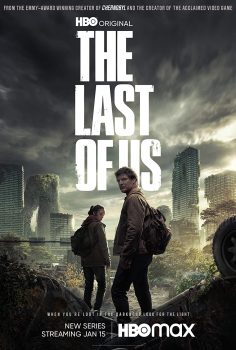
Last, but certainly not least, is the exceptional post-apocalyptic action horror, The Last of Us. Taking place in modern day, this is the story of two humans in a world where humanity has been all but obliterated by the cordyceps fungus; creating terrifying fungus-zombies against which we had no medical defence. In this world, what is left of humanity (in the USA, at least) is mostly crammed into “Quarantine Zones” run by a military government that took over in a coup when they decided that the politicians weren’t going a good enough job. Opposing them are the Fireflies — either freedom fighters against a fascist regime or a terrorist organization, depending on your own personal view.
Straits are dire. Food is heavily rationed, and sometimes just never shows up. Some QZs collapse — either they ran out of food, causing rioting and often ended in violence, or an infected person somehow slipped in, spelling disaster for everyone. Humanity’s numbers continually shrink.
At its very base, the game is about a gruff man, Joel, escorting a young, feisty teen, Ellie, all the way across the country because she is harbouring a secret that may prove to be the salvation of all of humanity. But that’s not what the game is about. Not really. It’s about a violent, traumatized man who lost his daughter early in the pandemic, slowly acquiring another daughter. It’s about a man learning to open up again, to care for a child again, to slowly unravel his tightly wound hurt and begin to let it go.
Listen, I’m a sucker for this kind of story.
What I loved best was that Joel, violent, scary, traumatized Joel, was not entirely redeemed at the end. Yes, he had opened up. Yes, he finally began to heal from his daughter’s death. But he’s still very much about saving what’s his and to hell with everyone else. I… uh… can relate. I would probably act not very differently if I found myself in Joel’s shoes.
I cried several times during my play through of this game. Everything was so beautifully done. The acting was spectacular, and the writing brilliant.
I often lamented that I wouldn’t be able to share these stories with my father, who does not and will not game. I am very fortunate that now I can. HBO acquired the rights to The Last of Us in 2020 and have produced what is, so far, an exceptional show. It follows closely enough to the story of the game that I’m struggling to fault it (though I do have thoughts!).
Some of the most compelling narratives of late, for me, have come from video games. I feel like those who have acquired these games are finally understanding that video games have a lot to offer, and merit being treated with respect. I am so very (optimistically) excited to see these narratives transferred to the screen — big or small — so I can share them with the people I love who do not game. And, if you’ll come along for the ride, you.
I aim to discuss these adaptations as they are released, starting with an episode by episode breakdown of the only one that has been thus far — The Last of Us. Do join me!
When S.M. Carrière isn’t brutally killing your favourite characters, she spends her time teaching martial arts, live streaming video games, occasionally teaching at the University of Ottawa, and cuddling her cat. In other words, she spends her time teaching others to kill, streaming her digital kills, teaching about historical death, and cuddling a furry murderer. Her latest novels are Skylark, Daughters of Britain, and Human.